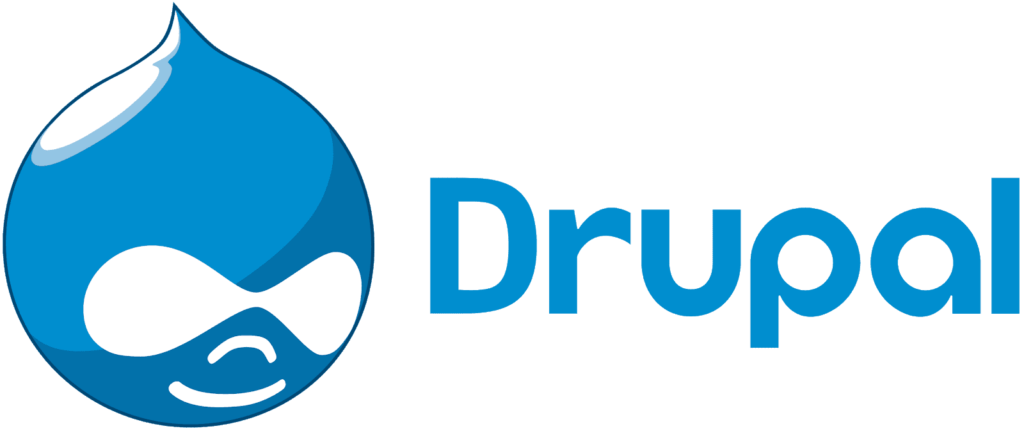Introduction : A Comprehensive Look at WordPress, Joomla, and Drupal
In today’s digital age, a user-friendly and efficient Content Management System (CMS) is crucial for managing websites, blogs, and online platforms. Three of the most popular CMS options are WordPress, Joomla, and Drupal. Each of these platforms comes with its own set of features, advantages, and drawbacks. In this comprehensive comparison, we will examine these CMS options to help you make an informed decision about which one suits your specific needs.
Must read: Security Measures in Website Development: Safeguarding Your Online Presence
WordPress: The Powerhouse of Simplicity

Pros:
1. User-Friendly Interface
- Ease of Use: WordPress is known for its user-friendly interface, making it an excellent choice for beginners and those with limited technical knowledge.
- Vast Community: With a massive user base, you can easily find tutorials, plugins, and themes to customize your website.
2. Extensive Plugin Library
- Versatile Functionality: WordPress boasts a vast library of plugins that allow you to add various features and functionality to your website, from SEO tools to e-commerce solutions.
- Third-Party Integrations: Integration with third-party services is seamless due to the abundance of plugins.
3. Strong SEO Capabilities
- SEO Optimization: WordPress is well-known for its SEO-friendly structure, helping your content rank higher in search engine results.
- Plugins for SEO: There are numerous SEO plugins like Yoast SEO and All in One SEO Pack to further enhance your website’s visibility.
4. Thriving Community
- Support and Resources: With millions of users worldwide, you’ll find extensive support, forums, and resources to help troubleshoot issues and improve your site.
Cons:
1. Vulnerability to Hacking
- Security Concerns: WordPress’s popularity makes it a prime target for hackers. You must regularly update plugins and themes to ensure security.
2. Limited Customization for Complex Websites
- Complexity Limitations: While suitable for most websites, WordPress might fall short when it comes to highly complex or unique web projects.
3. Frequent Updates
- Maintenance Overhead: Frequent updates can be a hassle for some users, as they might need to reconfigure plugins and themes.
Use Cases:
WordPress is an ideal choice for:
- Blogs and personal websites
- Small to medium-sized business websites
- E-commerce stores (with plugins like WooCommerce)
- Content-heavy websites with a focus on SEO
Joomla: The Middle Ground

Web Accessibility Implementation: Making the Digital World Inclusive
Pros:
1. User-Friendly Administration
- Intuitive Backend: Joomla offers an intuitive backend interface that strikes a balance between simplicity and complexity, making it suitable for users with some technical knowledge.
2. Robust Customization Options
- Flexible Templates: Joomla provides a range of templates and extensions for customization, allowing you to create unique websites.
- Multilingual Support: It excels in multilingual website management.
3. Strong Community Support
- Community-Driven: Joomla’s dedicated community offers extensive support, forums, and resources for users.
- Regular Updates: Updates focus on security and new features, keeping your site up-to-date.
Cons:
1. Learning Curve
- Moderate Complexity: Joomla has a steeper learning curve than WordPress, which may not be suitable for complete beginners.
2. Smaller Plugin Library
- Limited Plugins: While Joomla’s extension library is extensive, it’s smaller than WordPress’s, which might limit some functionality options.
3. Less SEO-Friendly
- SEO Challenges: Joomla requires more manual SEO work compared to WordPress, which offers more SEO-friendly features out of the box.
Use Cases:
Joomla is a good fit for:
- Small to medium-sized business websites
- E-commerce websites
- Community or membership-based sites
- Websites requiring multilingual support
Drupal: The Versatile Powerhouse

Pros:
1. High Customization
- Extreme Flexibility: Drupal provides extensive customization options, making it suitable for complex and unique web projects.
- Content Types: You can define custom content types and fields, enabling tailored content structures.
2. Scalability
- Enterprise-Grade: Drupal is known for its scalability, making it an excellent choice for large and enterprise-level websites.
- High Performance: It excels in handling high-traffic websites with complex data structures.
3. Security Focus
- Robust Security: Drupal takes security seriously, with a dedicated security team regularly releasing updates.
- Access Control: Fine-grained access control allows you to manage user roles and permissions effectively.
Cons:
1. Steeper Learning Curve
- Complexity: Drupal’s complexity can be overwhelming for beginners and may require more technical expertise.
2. Smaller User Base
- Smaller Community: Compared to WordPress and Joomla, Drupal has a smaller user base, resulting in fewer readily available resources.
3. Longer Development Time
- Development Process: Creating a website in Drupal often takes longer due to its high degree of customization and complexity.
Use Cases:
Drupal shines in the following scenarios:
- Large corporate and enterprise websites
- Government websites
- Educational institutions
- Complex web applications
Conclusion
Selecting the right CMS depends on your specific needs and goals. WordPress is the go-to choice for simplicity, a vast plugin library, and excellent SEO capabilities. Joomla strikes a balance between user-friendliness and customization, making it ideal for small to medium-sized businesses. On the other hand, Drupal excels in extreme customization and scalability, making it the preferred choice for enterprise-level projects.
Need a developer to make your business website?
Consider your technical expertise, project complexity, and future scalability requirements when making your decision. Regardless of your choice, each of these CMS platforms has a thriving community, ensuring you can find the support and resources you need to create and manage your online presence effectively. Whether you’re a blogger, business owner, or developer, there’s a CMS that’s just right for you.
